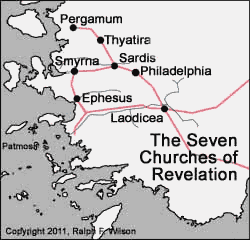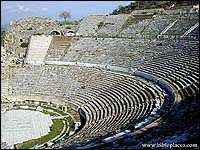Free E-Mail
Bible Studies
Beginning the Journey (for new Christians). en Español
Old Testament
Abraham
Jacob
Moses
Joshua
Gideon
David, Life of
Elijah
Psalms
Solomon
Songs of Ascent (Ps 120-135)
Isaiah
Advent/Messianic Scriptures
Daniel
Rebuild & Renew: Post-Exilic Books
Gospels
Christmas Incarnation
(Mt, Lk)
Sermon on the Mount
(Mt 5-7)
Mark
Luke's
Gospel
John's Gospel
7 Last Words of Christ
Parables
Jesus and the Kingdom
Resurrection
Apostle Peter
Acts
The Early Church
(Acts 1-12)
Apostle Paul
(Acts 12-28)
Paul's Epistles
Christ Powered Life (Rom 5-8)
1 Corinthians
2 Corinthians
Galatians
Ephesians
Vision for Church
(Eph)
Philippians
Colossians,
Philemon
1
& 2 Thessalonians
1 & 2 Timothy,
Titus
General Epistles
Hebrews
James
1 Peter
2 Peter, Jude
1, 2, and 3 John
Revelation
Revelation
Conquering Lamb of Revelation
Topical
Glorious Kingdom, The
Grace
Great Prayers
Holy Spirit, Disciple's Guide
Humility
Lamb of God
Listening for God's Voice
Lord's Supper
Names of God
Names of Jesus
Christian Art
About Us
Podcasts
Contact Us
Dr. Wilson's Books
Donations
Watercolors
Sitemap
#2. Letters to the Seven Churches (Revelation 2-3)
Audio (28:36)
 As you study chapters 2 and 3, I encourage you to print this lesson as well as the two-page comparison chart and tape it together (www.jesuswalk.com/revelation/7churches_chart.pdf). Then in each section, take brief notes in pen or pencil as you read on the message to each of the churches. This is the best way to get an understanding of the power of this passage and its message to the church today. The structure of this section is pretty clear. Though messages to some churches may omit one of these, most contain:
As you study chapters 2 and 3, I encourage you to print this lesson as well as the two-page comparison chart and tape it together (www.jesuswalk.com/revelation/7churches_chart.pdf). Then in each section, take brief notes in pen or pencil as you read on the message to each of the churches. This is the best way to get an understanding of the power of this passage and its message to the church today. The structure of this section is pretty clear. Though messages to some churches may omit one of these, most contain:
-
 Portrayal of Jesus
Portrayal of Jesus - Praise for the Church
- Criticism of the Church
- Exhortation
- Correction/Encouragement
- Penalty/Reward
- Promises to Overcomers
- General Admonition
Incidentally, occasionally you run across an interpretation that compares each of the churches to different ages in the life of the church, the last one -- the Laodicean church -- being the present age. There is absolutely no basis in scripture for this teaching, though it was found in the footnotes of popular study Bibles for years. The danger of this unsubstantiated teaching is that you will gloss over important lessons derived from the other churches. All these lessons are important if the Church today is to become the Church that Jesus can be proud of.
The Church in Ephesus (2:1-7)
2:1 "To the angel."
The angels of the seven churches could be:- Guardian angels , representing the churches (Alford; see Daniel 10:13; 20:21; Matthew 10:18, Acts 12:15).
- The pastors of those churches (Greek angelos, messengers; see Matthew 11:10; Hendriksen).
- A personification of the prevailing spirit of the church (Mounce, Swete, Morris).
"Him who holds the seven stars in his right hand ... walks in the midst."
Christ has the leaders/angels of the churches in his control; He is present in their midst and aware of their activities (Leviticus 26:11-12). "Ephesus"
"Ephesus"
2:4 "Abandoned the love you had at first."
A discerning but cold orthodoxy (verse 2) had replaced the fervent, contagious love which once characterized the church (Matthew 24:12-14).2.5 "Remove your lampstand."
If the church turns inward and forsakes its light-bearing responsibility, the Christ removes it ("your lampstand") from the community. See Isaiah 42:6-7; 49:6.|
Q1. How can a local congregation lose its "first love" for Jesus? What are the signs of genuine love for Jesus in worship and ministry? How does the lack of love show up? How can a congregation regain this love?
|
2:6 "Nicolaitans"
were a sect in the church that led Christians to compromise the holy standards of the church by encouraging involvement with the idolatry and sexual immorality (2:6, 15, 20-21) that was prevalent in the idolatrous culture of Ephesus and surrounding pagan cities.2:7 "To him who conquers"
(NIV "overcomes"). The Greek verb nikao, means "to win in the face of obstacles, be victor, conquer, overcome, prevail" (BDAG 673). We resist and stand successfully against Satan's temptations by our faith. This word is used a number of times in Revelation. How is a Christian able to overcome according to the following verses? (This question and others are For Your Information [FYI], not to share on the Forum. But your time answering will build your understanding. Questions for the Forum are indicated by numbers preceded by the letter Q.)|
John 16:33 |
|
|
Romans 12:21 |
|
|
1 John 4:4 |
|
|
1 John 5:4-5 |
|
|
Revelation 12:11 |
|
|
Revelation 15:2 |
|
|
Contrast the "overcomers" with others in Revelation 21:7-8:
|
|
"Eat of the tree of life ... in the paradise of God." "Paradise" comes from a Persian word for a "pleasure garden or park." See Genesis 2:9, 15; 3:22-24; and Revelation 22:2. Paradise symbolizes the final state in which God and man are restored to that perfect fellowship which existed in the Garden of Eden before the entrance of sin into the world. Eating the fruit is symbolic of eternal life (Genesis 3:22).
The Church in Smyrna (2:8-11)
2:8 "Smyrna"
is only one of the seven cities still lived in -- modern Izmir. This beautiful, proud city was larger than Ephesus, with a population of about 200,000. Its strong allegiance to Rome resulted in great persecution for Christians. In Smyrna, Bishop Polycarp was burned at the stake for his faith in 155 AD.2:9 "A synagogue of Satan"
describes a religious community that consisted of only outward Jews, not true followers of the Lord. In fact they served their father the devil (John 8:44) who led them to destroy God's true people."Poverty."
Smyrna and Philadelphia are the only churches for which Jesus offers praise unmixed with criticism. Both see themselves as small and weak -- "poverty" (2:9), "little strength" (3:8) -- yet Jesus recognizes their true strength.2:10 "Be faithful ..."
captures the theme of Revelation in two words."A crown of life"
recalls the garland wreath awarded to the victor in the games. See James 1:12; 2 Timothy 4:8. Though the believer may be martyred, his prize is eternal life, not the second death (Revelation 20:6, 14; 21:8), that is, eternal punishment.The Church in Pergamum (2:12-17)
2:12 "Pergamum"
was the at one time the capital city of Asia, built atop a 1000-foot cone-shaped hill. It was a center of worship of the pagan gods Zeus, Athene, Dionysis, and Asklepios. In 29 BC, the first temple dedicated to a living emperor was built there."Satan's throne"
is probably a reference to emperor worship. "As Rome became the center of Satan's activity in the West (13:2; 16:10), so Pergamum had become his 'throne' in the East" (Mounce).2:14 "The teaching of Balaam."
See Numbers 25:1-3 with Numbers 31:15-16. Balaam's sin involved encouraging the Midianite women to seduce the Israelites into idolatry. Balaam is the prototype of corrupt teachers who betray their listeners into fatal compromise with worldly ideologies (Mounce).|
Q2. Why would loosening of sexual standards to conform to the prevailing morals of the culture be destructive of vital Christian faith and witness? How has your culture tended to take the edge off your own Christian moral convictions or forced you to be quiet about them?
|
2:17 "The hidden manna."
See Exodus 16:32-34; Hebrews 9:4. The overcomers will partake of the manna hidden in the heavenly temple (11:19).The Church in Thyatira (2:18-29)
2:18 "Thyatira"
was a center for manufacture and marketing, the home of Paul's benefactor Lydia, who was a seller of purple goods (Acts 16:14). Thyatira's numerous trade guilds were inseparably entwined with pagan religious observances posing a special problem for both the spiritual and economic well-being of Christians (Mounce)."Eyes like a flame of fire"
suggest penetrating power to see through Jezebel's seductive teachings, while "feet like burnished bronze" conveys the idea of strength and splendor.2:20 "Jezebel"
is described here as "that Jezebel of a woman" because her compromise with paganism (2:14) placed her in the succession of the Old Testament Jezebel (1 Kings 16:29-33 and 2 Kings 9:30-37), whose Baal cult was marked by idolatry and ritual prostitution (Bruce). Her teachings tempted Christians to accommodate to heathen practices in the trade guilds. Refusal to conform to the guild practices could mean social isolation and economic hardship. Contrast Jezebel and her followers to "the elect lady and her children" (2 John 1).|
Q3. Why do you think the religious compromise required by participating in heathen religious practices in the trade guilds was so spiritually destructive? What compromises do twenty-first century Christians struggle with? Let's not settle for trite legalisms about drinking and smoking. What are the real compromises that dilute vital Christianity?
|
2:22 "Those who commit adultery with her...."
John is probably using adultery here as a symbol for religious compromise, rather than implying literal adultery. See James 4:4.2:26 "Power over the nations."
Believers shall share rule with the Messiah (5:10; see Psalm 2:8-9)."The morning star."
Probably a reference to the presence of the Lord (22:16; see also Isaiah 14:12; Daniel 12:3).The Church in Sardis (3:1-6)
3:1 "Sardis,"
once a powerful city, had declined greatly by the time John was writing. Yet it was still rich and famous, lying at the western end of a great caravan route from Susa in Mesopotamia. The Sardis church receives the most severe denunciation of the seven; it was "a perfect model of inoffensive Christianity" (Caird). The majority had so fully compromised with the pagan environment that the church was Christian in name only (that is, "nominally" Christian).|
List the four imperatives or commands in 3:2-3 |
|
1. |
|
2. |
|
3. |
|
4. What might repentance consist of for this church?
|
3:4 "Soiled their garments."
Inscriptions in Asia Minor indicate that soiled clothes disqualified the worshipper and dishonored the god.3:5 "White garments."
See 3:18; 4:4; 6:11; 7:9, 13; 19:14. Portrays justification by Christ (7:13) which fits us for heaven."Not blotted out of the book of life."
See Exodus 32:32-33; Psalm 69:28; Daniel 12:1. When a criminal's name was removed from the civic register of an Asiatic town, he lost his citizenship."Confess his name."
See Matthew 10:32-33 and 10:21-22.The Church in Philadelphia (3:7-13)
3:7 "Philadelphia"
(modern Alashehir) is named by the Greek word for "brotherly love." On a major trade route, its economy was based on agriculture and industry. It was remarkable for its many temples and religious festivals, with the worship of Dionysis as its chief pagan cult. Earthquakes had often devastated the city."He who has the key of David."
See Isaiah 22:15-25 and Rev 1:18. Christ has absolute power to control entrance to eternal life.3:8 "An open door."
No matter if the door to the synagogue has been closed; the door to the messianic kingdom remains open. However in light of Acts 14:27; 1 Corinthians 16:9; 2 Corinthians 2:12; Colossians 4:3; he may be referring to a greater opportunity to be witnesses in their city.3:9 "Who say they are Jews but are not."
See notes on 2:9 above. The church is now the "Israel of God" (Galatians 6:16). See also Isaiah 2:3; 45:14; 49:23; Zechariah 8:20-23.3:10 "Those who dwell upon the earth"
refers consistently in Revelation to the enemies of God's people, not to the church. See 6:10; 8:13; 11:10; 13:8, 14; 17:8."I will keep you from the hour of trial...."
Pre-tribulation interpreters see this verse as implying "the rapture of the church before the time of trouble referred to as the great tribulation" (Walvoord). But rather than removal from trial, the emphasis here and elsewhere in Revelation is on keeping, preservation, spiritual protection (John 17:15; Revelation 6:9-11; 7:1-3, 14; 12:6).3:12 "Make him a pillar in the temple,"
conveys the idea of stability and permanence (see Galatians 2:9; 1 Timothy 3:15). Though the context is the new Jerusalem, the imagery is not the same as seen in 21:22. We must get used to Revelation's fluid imagery. In a city where earthquakes were common, this permanence would be particularly comforting.The Church in Laodicea (3:14-22)
3:14 "Laodicea"
(modern Eski-hisar) was the wealthiest city in Phrygia. The area was famous for manufacture of clothing from soft, glossy black wool, a banking industry, and a medical school. One of its best known medicines was an eye salve made from "Phrygian powder" mixed with oil."Amen"
is a transliteration of the Hebrew verb 'aman, "to confirm, support, be faithful" (TWOT 1:51). See Isaiah 65:16 ("the God of the Amen") and 2 Corinthians 1:20. "Amen" expresses "strong affirmation of what is stated" (BDAG 53-54), the acknowledgement of that which is valid and binding."Faithful and true witness"
reminds Christians that Jesus declared truth in spite of persecution and is our example of a faithful witness in the face of danger and pressure to compromise."The beginning of God's creation"
(Colossians 1:15-18 and John 1:3). The Greek noun arche can mean "one with whom a process begins, beginning" (KJV, NRSV) or "ruler, authority" (NIV; BDAG 137-138). Jesus is the beginner of the new people of God, the Christian community, the New Jerusalem, etc.3:15 "Neither cold nor hot."
Two possible interpretations:- Most common is hot = fervent in faith; cold = openly antagonistic (Morris, Ladd, Alford). But why would Christ prefer cold to lukewarm?
- Perhaps this is a reference to local conditions. Laodicea's water supply, drawn from the hot springs to the south, was still lukewarm after flowing for 5 miles in stone pipes -- unlike the cold water which refreshed their neighbors at Colassae, or the hot water whose healing properties were valued by those of Hierapolis (Bruce, Mounce, Beale).
In any case, Christ is disgusted by the church's nauseating indifference, nominal profession, materialistic complacency.
|
Q4. Why are so many churches a "hotbed of apathy"? (Don't rag on other denominations!) How can we combat spiritual apathy and an insipid witness in ourselves?
|
3:18
Christ's counsel is for the church to recognize its need and turn to Him for help. It alludes to the city's famed banking, clothing, and medicine industries.3:20 "Behold, I stand at the door and knock."
Here, speaking to self-sufficient nominal Christians, Christ requests permission to enter and re-establish fellowship."Eat with him."
In Oriental lands the sharing of a common meal indicates a strong bond of affection and companionship, and becomes a symbol of the intimacy to be enjoyed in the coming messianic kingdom (see Luke 22:30; Revelation 19:9).These letters are intended as a particular encouragement to real churches at a specific point of their histories. However, they serve as a warning, comfort, and promise to churches with similar characteristics in our own day.
|
Q5. Summarize the lessons of this chapter. What are the churches criticized for? What are they praised for? How should these observations shape the twenty-first century Church?
|
Prayer
Jesus, Lord of the Church and Ruler of all, forgive us for the sin and apathy we find in ourselves and in our churches. Teach us how to repent -- not with knee-jerk legalism, but with a zeal based on love for you. In your holy name, we pray. Amen.
References and abbreviations and Reprint Guidelines
Copyright © 2025, Ralph F. Wilson. <pastor![]() joyfulheart.com> All rights reserved. A single copy of this article is free. Do not put this on a website. See legal, copyright, and reprint information.
joyfulheart.com> All rights reserved. A single copy of this article is free. Do not put this on a website. See legal, copyright, and reprint information.
 |

|
In-depth Bible study books
You can purchase one of Dr. Wilson's complete Bible studies in PDF, Kindle, or paperback format -- currently 48 books in the JesusWalk Bible Study Series.
Old Testament
- Abraham, Faith of
- Jacob, Life of
- Moses the Reluctant Leader
- Joshua
- Gideon
- David, Life of
- Elijah
- Psalms
- Solomon
- Songs of Ascent (Psalms 120-134)
- Isaiah
- 28 Advent Scriptures (Messianic)
- Daniel
- Rebuild & Renew: Post-Exilic Books
Gospels
- Christmas Incarnation (Mt, Lk)
- Sermon on the Mount (Mt 5-7)
- Luke's Gospel
- John's Gospel
- Seven Last Words of Christ
- Parables
- Jesus and the Kingdom of God
- Resurrection and Easter Faith
- Apostle Peter
Acts
Pauline Epistles
- Romans 5-8 (Christ-Powered Life)
- 1 Corinthians
- 2 Corinthians
- Galatians
- Ephesians
- Philippians
- Colossians, Philemon
- 1 & 2 Thessalonians
- 1 &2 Timothy, Titus
General Epistles
Revelation
Topical

 To be notified about future articles, stories, and Bible studies, why don't you subscribe to our free newsletter, The Joyful Heart, by placing your e-mail address in the box below. We respect your
To be notified about future articles, stories, and Bible studies, why don't you subscribe to our free newsletter, The Joyful Heart, by placing your e-mail address in the box below. We respect your